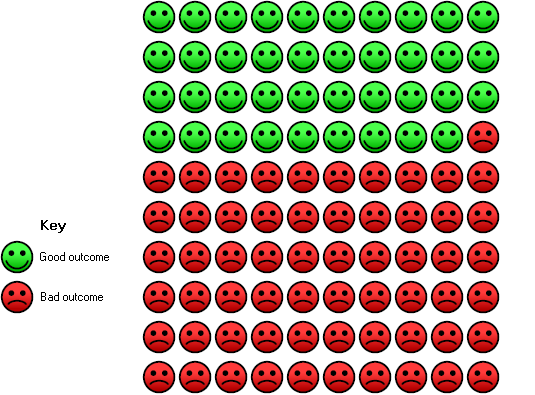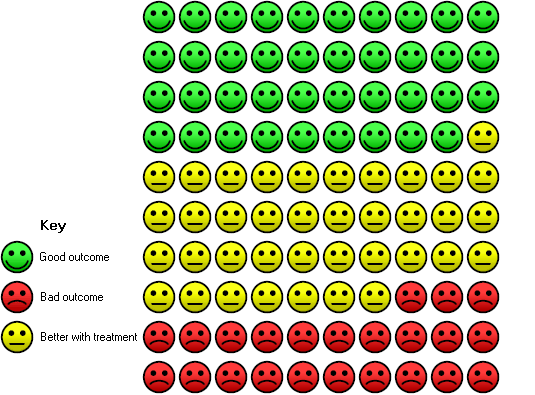Relapse Risk After One Year
Impact of Treatment on Relapse
Research has clearly shown that medication adherence significantly impacts relapse rates:
Relapse Rates
- With medication: approximately 20% relapse rate after one year
- Without medication: approximately 60-80% relapse rate after one year
Why Medication Matters
- Helps maintain brain chemistry balance
- Prevents symptom recurrence
- Allows for psychosocial functioning
- Reduces the "kindling effect" (where each episode makes future episodes more likely)


Most international guidelines recommend continuing medication for extended periods, especially after multiple episodes.
Duration of Treatment
Current Treatment Guidelines
Most international guidelines no longer specify clear time frames for medication treatment duration. Instead, they recommend:
- After a first episode: continue medication for at least 1-2 years
- After multiple episodes: longer-term treatment, potentially for many years or indefinitely
- Any reduction in medication should be gradual and carefully monitored
- Decision-making should be collaborative between the individual, their healthcare providers, and support persons
Factors Influencing Treatment Duration
- Number of previous episodes
- Severity of episodes
- Response to treatment
- Side effect burden
- Individual preferences and goals
- Available support systems
Important Considerations
- Never stop medication suddenly
- Always consult with healthcare providers before making changes
- Be aware of early warning signs of relapse
- Have a clear plan for what to do if symptoms return
- Balance medication benefits against side effects
- Consider long-acting injectable medications for those who struggle with daily pills
Relapse Prevention
Key Strategies
- Medication adherence - Taking medication as prescribed
- Early warning sign recognition - Identifying personal signs of relapse
- Stress management - Developing effective coping techniques
- Regular routine - Maintaining consistent sleep, diet, and activities
- Substance avoidance - Avoiding alcohol and recreational drugs
- Support network - Engaging with family, friends, and professionals
Early Warning Signs
Common early signs that may indicate a potential relapse:
- Sleep disturbances
- Increased anxiety or irritability
- Social withdrawal
- Difficulty concentrating
- Subtle changes in thinking or perception
- Reduced self-care
Activity Suggestion
Encourage each patient to recognize and write down their own early warning signs. This personalized list is a crucial tool for self-management.
Action Plan for Warning Signs
- Contact your healthcare provider promptly
- Increase support from family and friends
- Reduce stressors where possible
- Focus on basic self-care (sleep, nutrition, exercise)
- Use learned coping strategies
- Avoid making major life changes during vulnerable periods
- Consider temporary medication adjustments (as directed by healthcare provider)
Remember: Early intervention at the first sign of relapse can often prevent a full episode and hospitalization.
Crisis Planning
Encourage each patient to write down their own crisis plan. Consider also providing and creating a "crisis pass" with emergency contacts and information on medication, to carry with oneself.
References and Resources
Key References
- Bäuml J, Lambert M. Psychosen erkennen, verstehen und behandeln. Ein Wegbegleiter für Betroffene und Angehörige. VDM Verlag, Michelstadt, 2009
- Bäuml J, Pitschel-Walz G, Berger H, Gunia H, Heinz A, Juckel G. Arbeitsbuch Psychoedukation bei Schizophrenie (APES). Schattauer 2010
- Bäuml J, Behrendt B, Henningsen P, Pitschel-Walz G. Handbuch der Psychoedukation für Psychiatrie, Psychotherapie u. Psychosomatische Medizin. Schattauer 2016
- Ceraso A, Lin JJ, Schneider-Thoma J, Siafis S, Tardy M, Komossa K, Heres S, Kissling W, Davis JM, Leucht S. Maintenance treatment with antipsychotic drugs for schizophrenia. Cochrane Database of Systematic reviews 2020, Issue 8, Art. No.: CD008016